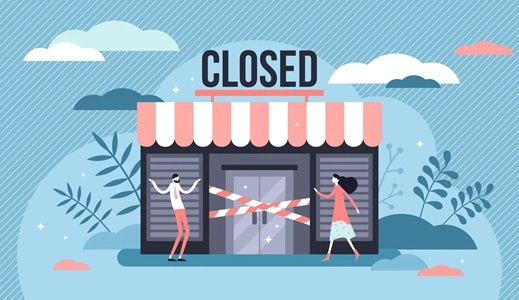Statistics show that the survival rate for new startups is approximately 60 percent in the first year. Out of these, only 50 percent standstill up to the fourth year, and barely 35 percent survive 10 years and above. This shows how the failure rate of small businesses is higher. We end up asking ourselves, why do small businesses fail? Suppose you are planning to open a business or you have already opened one. In that case, this article will help you understand common mistakes causing small business failure so you can avoid failing.
Lack of Effective Business Plan

Before venturing into businesses, it is wise to develop a good business plan as it will give you a clear direction. Make sure you have a solid understanding of the industry you are about to enter. Understand the competition rate and whether the industry is profitable. Don’t be distracted on the way, forgetting about your plan; stick to it so that you can achieve your goals. A business without a plan is vulnerable, and the possibility of failure is high.
Financial Mismanagement
Most small businesses don’t survive the first years after startup due to financial problems. Apart from not having enough funding for the startup, poor financial management can lead to your downfall. For a business to survive, cash management must be a top priority. Failure to match your cash flow leads businesses to deep waters faster. Find ways to manage your business finances efficiently to avoid the risk of failure. Trusting the right people with your accounts and utilizing finance software for startups can enhance your financial success.
Poor Management Skills
Management skills are crucial when it comes to starting and running a business. You and your leadership team must have proper management skills, including planning, organizing, controlling, and directing. Otherwise, you are bound to fail very soon. Most small businesses fail when they grow beyond their management skills and resources. To avoid this, keep on upgrading your skills and enhancing the resources as your business grows. Poor management can lead to issues in hiring, marketing, and financing.
Not Knowing When to Say “NO”
In everything you do, understand that the aim of business is to satisfy the customers while making a profit. None should go without the other. Focus on quality, delivery, and follow-up in order to serve your customers well. Avoid going after all the business you get, as this can drain your cash and reduce your overall profitability. Saying no to some projects or businesses is okay, and you should not feel guilty about it. Do what you can manage to avoid delivering quantity over quality.
Poor Marketing
Marketing increases your business visibility, making it known to many people. To thrive in a small business, have well well-established market plan and follow it through. Understand the nature of your business and your target market, and then develop a marketing strategy that aligns with them. Strike a balance between traditional marketing methods (such as adverts and local marketing) and digital marketing (such as social media and business websites).
Failing as a small business is very easy if you are not careful. While knowledge and skills can help you run a business, you also need to focus on other essential factors. Have a good business plan, stick to it, and invest in marketing. Business finances should be appropriately managed since failure leads a business to deep waters quickly.

Meet Suhas Harshe, a financial advisor committed to assisting people and businesses in confidently understanding and managing the complexities of the financial world. Suhas has shared his knowledge on various topics like business, investment strategies, optimizing taxes, and promoting financial well-being through articles in InvestmentDose.com


